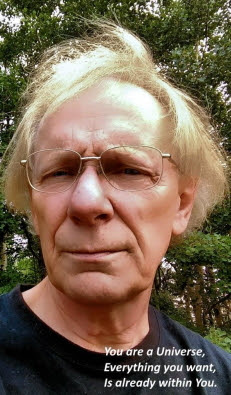The U.S. blacklisted me. Let's talk.
By Tariq Ramadan
London - Living in a democratic society that grants an individual's right to life, liberty, and the pursuit of happiness is the cherished privilege and pride of Western citizenry and the dream longed for by the rest of the world.
Countless have fought and died to secure these rights in the West, and millions the world over are dying for them today – dying to be free to worship, free to associate, free to speak, free to participate in the governance of their own countries.
But the struggle for the protection of rights and civil liberties in the West is not a finished chapter in our history. The constitutions of Western democracies and the rights they enshrine do not protect themselves. The preservation of these liberties requires a vigilant, critical, and courageous citizenry that can be neither complacent in times of security nor compromising in times of fear and insecurity – citizens who understand that the violation of the basic rights of one is a violation of the rights of all. Loyalty to country and constitution demands that we speak up against injustice, uphold our ideals, and hold our leaders accountable.
For years, I worked tirelessly in academic and public circles to dismantle the barriers erected by those who see Islam and the West as mutually exclusive, to build bridges of mutual understanding and respect. Since 2001, I have also intensified my work to remind my fellow Western citizens of the fragility of our societies and the precariousness of our civil liberties as we are thrust into this so-called war on terrorism. Since the end of 2004, I have done this primarily in Europe through my academic work, debates, and public lectures and by working closely with European politicians, governmental agencies, and civic institutions. But I have been prevented from doing this work on American soil.
In the summer of 2004, I was poised to start a dual professorship at Notre Dame University and eager for a more concentrated academic and public engagement than was previously allowed by my numerous but brief visits to the United States.
But that was not to happen. My visa was canceled at the last minute at the behest of the Department of Homeland Security, supposedly under a provision of the Patriot Act. This revocation not only cost me my academic post, it deprived me and Americans of a much needed mutually enriching dialogue and debate. It also fueled fantastical allegations of terrorism support and of shadowy associations that tarnished my reputation and cast a cloud of suspicion over my character and work.
After American organizations sued, the government abandoned its initial reason for excluding me but came up with a new one – that, between 1998 and 2002, I had contributed small amounts of money to a Swiss charity supporting humanitarian work in the Palestinian territories. The government is relying on a "material support" law that didn't exist until 2005 – long after I made the donations – and it is holding me accountable for donating to a charity that still operates lawfully in Europe today. And while the US government has blacklisted the charity, it didn't do so until 2003 – a year after I made my last donation. Many US organizations believe that I am being barred from the country not because of my actions but because of my ideas. The conclusion seems inescapable.
The US government's shifting arguments in my case might be absurd – even comical – if the stakes were not so high. But, in the name of defending the country against terrorism, the government seems to be trampling over the rights that make democracies worth defending. In a time when we are inundated with the daily rhetoric of ideologues, exclusivists, and merchants of fear, we are in dire need of engaged academics and public intellectuals who can write and speak authoritatively on the topics of the day and who also provide visible public models for ethics of citizenship. Yet, publicized as my case might be, it is not the only example of this administration's exclusion of academics critical of its domestic and foreign policies.
Bleak as this picture might seem at times, I remain hopeful. I am encouraged by the unwavering support I have received from ordinary Americans, civic groups, and particularly from scholars, academic organizations, and the American Civil Liberties Union, which argued my case in federal court last week. I am heartened by the emerging debate in the US about what has been happening to our countries and ideals in the past six years.
I am hopeful that justice will prevail and I will be allowed to enter this country so that I may contribute to the debate and be enriched by dialogue. It is much more important than a personal vindication for me; it is a matter of protecting of collective ideals and academic freedom, a cornerstone of democracy.
